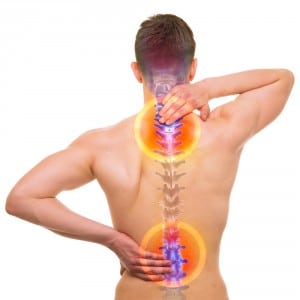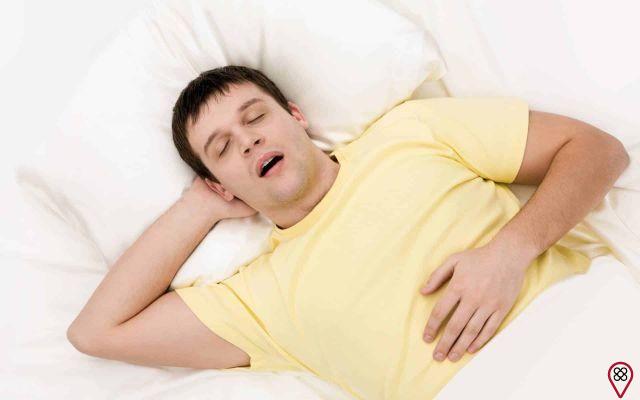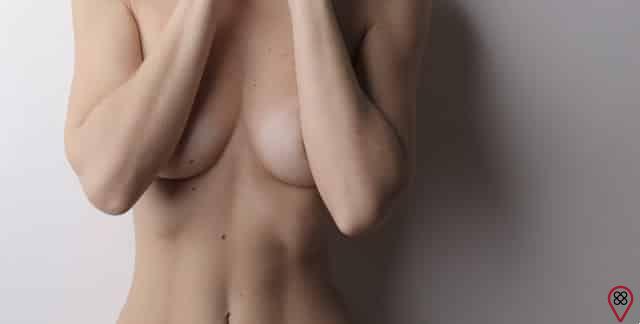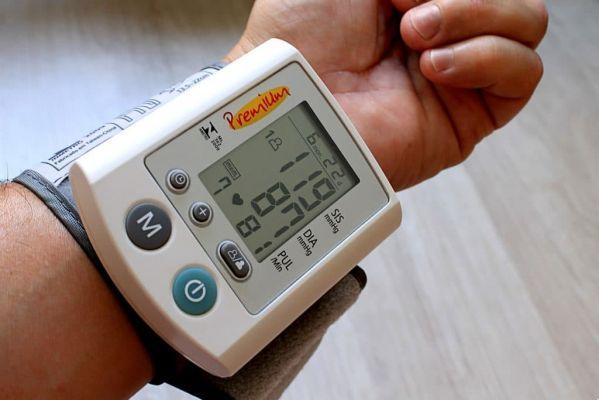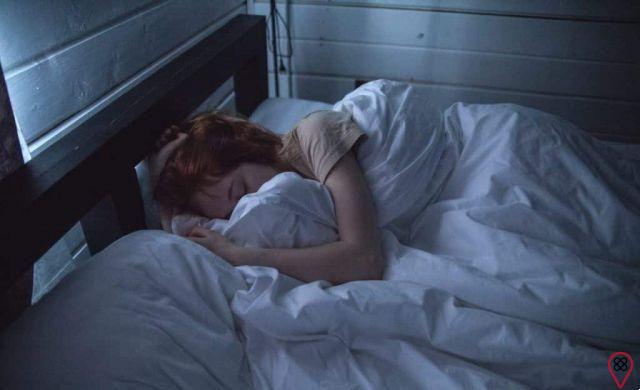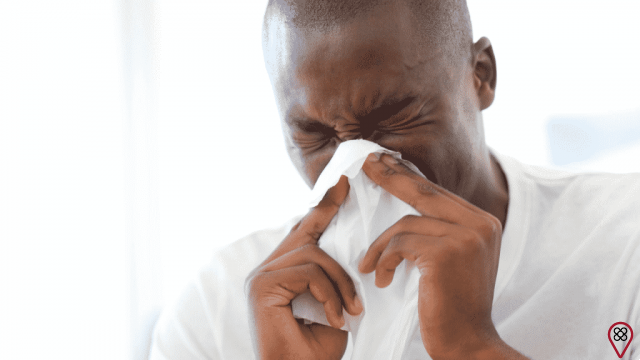Involuntary movements, words said without intention, insults without any context… These are some of the symptoms of Tourette's syndrome that can significantly compromise the quality of life and the ability to socialize and socially accept people who suffer from Tourette's syndrome. But what is Tourette's syndrome?
After all, how does it affect people who suffer from this condition? Is there treatment? Is there a cure? Are there famous people who live with this problem? Find out all this in the article we prepared!
What is Tourette syndrome?
Tourette's syndrome is a neuropsychiatric disease whose main characteristics are a variety of motor and vocal tics. A person with Tourette's has tics that persist for more than a year and usually begin to manifest during childhood.
A person with Tourette's tics vary over weeks or months. For example, people who have vocal tics may spend weeks repeating a phrase, a word or an expression, but never say it again after a while.
In addition, Tourette's syndrome can cause a number of other disorders, such as obsessive-compulsive disorder (OCD), learning disorders, attention disorder with hyperactivity (ADHD), among other emotional problems.
the name of the syndrome
The name of this syndrome is a tribute to the French neurologist Georges Gilles de la Tourette. In 1885, he analyzed a series of cases of people with similar symptoms, coming to the conclusion that this was a specific condition, with similar neuropsychiatric disorders, but with some variations.
Although he was the first to catalog the case of several patients, it was the French physician Jean Itard, in 1825, who was the first to write about what would later become known as Tourette's syndrome. Itard described the case of the Marquise de Dampierre, who was known to speak a lot of obscene words in public.
Causes
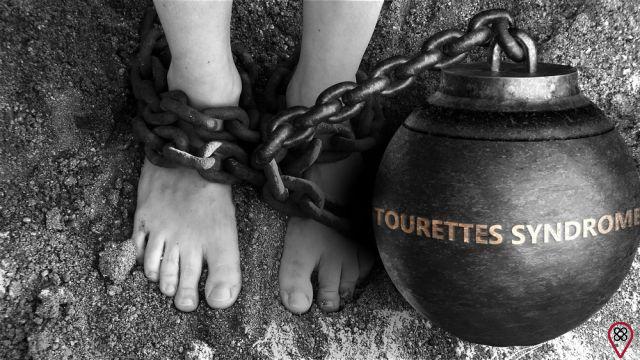
The causes of Tourette syndrome still remain mysterious to neuroscience. As late as 1885, Gilles de la Tourette stated that this condition appeared to have some relation to heredity, as families with a person suffering from the condition often have other members who also have Tourette's.
Currently, neuroscience still does not have a definitive answer regarding the causes of this problem, but the most accepted is that its emergence is a mixture of heredity with the environment, experiences, traumas and other events in the life of the person who develops this neuroscience. condition.
Symptoms of Tourette Syndrome
It is estimated that 80% of Tourette syndrome cases start with motor tics, such as contracting the muscles of the face, blinking, frowning, shaking the head, among other more or less complex movements than the person, when asked why he did it. /is doing, cannot respond properly.
After this symptom, the most common involves noises, such as coughing, clearing the throat, sniffling and making other sounds. From these vocalizations, some people move on to another symptom, which is to say words, phrases and expressions.
Despite being the most well-known symptom of Tourette's, involuntary use of words is the least common among people who suffer from the condition. The most common types of this symptom are coprolalia (involuntary use of obscene words), copropraxia (involuntary use of obscene gestures), and repetition of sounds, words and phrases spoken by another person (echolalia).
All these symptoms, especially because they are involuntary, cause a lot of stress in patients. Most can even suppress these involuntary reactions, but the physical and emotional effort is enormous. Many use as an example the agony we feel when we try to keep our eyes from blinking—and the relief we feel when we finally do.
Therefore, problems such as social phobia, irritability, anxiety, social isolation, depression, among others, can end up being caused by the uncomfortable symptoms of Tourette's syndrome.
How is the diagnosis made?
The diagnosis is made by a neuropediatrician, in case the symptoms begin to manifest in childhood, or by a specialized psychiatrist, in the case of adults.
The professional will evaluate if the motor tics are multiple and if they manifest for a while, so the diagnosis usually takes weeks or even months.
In addition, the doctor assesses whether the tics occur in clusters, that is, several times a day for many consecutive days or almost every day but for at least three consecutive months.
Finally, the professional evaluates, questioning the patient and the family, from when the symptoms began to manifest, because the literature on this disease tells us that it is very rare that it begins to manifest after 18 years of age.
Is Tourette Syndrome Curable?
There is still no cure available for Tourette's syndrome. What exists are palliative treatments, which help patients to have a better quality of life and control symptoms, avoiding embarrassing situations and other consequences, such as difficulty in socializing.

Treatment
First of all, a person suffering from Tourette syndrome needs to eliminate or reduce stress in their life, because stressful situations accentuate the symptoms. That's why treatment includes relaxing activities, such as meditation and yoga, for example, as well as a routine and lifestyle free from stressful situations.
In addition, psychotherapy is recommended to deal with symptoms and their consequences for self-esteem and social acceptance. Cognitive behavioral therapy is usually the most appropriate. A treatment known as habit reversal can be applied.
Habit reversal asks patients to monitor the sensations that arise before a tic so they are able to “predict” when the tics will happen and what can be done to mitigate or even prevent them from happening.
As per the recommendation of the psychiatrist professional, antipsychotic medications can also be recommended, because, in some cases, they help to reduce the intensity and frequency of tics.
Facial tics can also be treated with botox injections, as recommended by the medical team. Finally, some professionals recommend a treatment with deep brain stimulation, which has already been shown to be effective in some cases.
Meet the celebrities who suffer from Tourette's syndrome
It is possible to deal with Tourette's syndrome and still lead a healthy and fulfilling life. Check out some celebrities who deal with this condition:
Tim Howard
A goalkeeper for the US team and for important football clubs, Howard was diagnosed at age 11 and said, in an interview with the German magazine Der Spiegel, that he suffers from spasms in his arms, neck and eyes, but that during matches, when the ball comes towards you, it does not affect you.
Billie Eilish
The very famous American singer, symbol of her generation, spoke publicly about having Tourette's syndrome on the show "The next guest needs no introduction". She said that many artists suffer from this problem, but she is embarrassed to publicly admit it and that the tics only show up for her when she is not singing.
Dealer
Spanish youtuber Dilera is another who has Tourette's syndrome. He always talks about it in his videos, not least because his tics happen quite often, especially vocalizations.
Mahmoud Abdul-Rauf
A former basketball player, he told the official website of the NBA, the North American basketball league, that he discovered the syndrome in his childhood, but that he found in sport a way to fight it, being quite a perfectionist and training a lot.
Films dealing with Tourette's syndrome
Check out some movies that include Tourette syndrome among their themes, which can help you understand this problem and how it affects people who go through it:
“The Inland Road” and “Vincent Wants to See the Sea”
The second film is the original and the first, the American version of the original feature, which is German. In the story, Vincent is a boy who has Tourette syndrome and who, after losing his mother, is hospitalized by his father in a clinic, where he meets a girl who suffers from anorexia and a boy who has OCD. Together, the three escape the clinic to fulfill a dream.
“The Girl in Wonderland”
Phoebe is a girl whose biggest dream has always been to participate in an "Alice in Wonderland" production at school. Because she has Tourette's syndrome, she is rejected by her classmates and, little by little, begins to live more and more in her fantasy world, to escape painful reality. Meanwhile, her parents try to help her.
“First in class”
Based on the true story of Brad Cohen, the film tells the story of a young man who struggles to overcome the symptoms of Tourette's syndrome while trying to fulfill his dream of becoming a teacher.
You might also like:
- Understand what Stockholm Syndrome is and its treatment
- Reflect on Down Syndrome and inclusion at school
- Learn how to identify and live with autism
Anyway, these are the main information about this neuropsychiatric condition that can greatly compromise the quality of life of people who suffer from it, but for which there is treatment and perspective of a better life.



